In early March there was a lot of second-guessing about the Ukrainian decision to defend Bakhmut despite heavy casualties rather than withdraw.
But in the past two weeks, Russia's attacks have faltered as "extreme attrition" of troops and equipment has severely reduced Russian capabilities. This will benefit Ukraine because there will be fewer Russians to defend against Ukraine's coming counteroffensive. JL
Phillips O'Brien reports in his substack:
The Ukrainians, who have the best intelligence, decided to fight for Bakhmut. They have had a admirable track record in this war of making the right strategic call, and they have articulated a clear strategic vision of what they are trying to accomplish. It is the Russian attacks on Bakhmut that ran out of steam before Ukrainian forces failed. The Russians are now stuck in a terrible position with lots of exposed bulges in their lines. If the Ukrainians had withdrawn, they would have given this depleted, exhausted force claim to a political victory and at the same time dig-in and rest for a coming Ukrainian counteroffensive.As you might have heard, outside of Bahkmut (where the line really didnt move) much of the fighting went on around the town of Avdviika. There, over the last two weeks there have been some incremental advances made by Russian forces. Indeed its just interesting to note that some of the most prominent twitter supporters of the Russian government have started to say that Avdviika always was more important than Bakhmut.
The Ukrainian Army’s combat capabilities degrade rapidly. Avdiivka was nearly encircled in couple of days and the open roads are under artillery fire. -> This is the city where Donetsk is shelled from! Avdiivka is the symbolic and emotional battle for Russia … not Bakhmut!This is probably read more as a commentary about how the Battle of Bakhmut is going, but still, the Russians have made some advances around Avdiivka. There has been some excellent reporting of the terrible situation for the Ukrainian population there, and the fighting does seem pretty constant.
For now, Russian forces have failed to entirely encircle Avdiivka, next to occupied Donetsk, but continue to make methodical advances. In the meantime, life for civilians left in Avdiivka is one of methodical extermination.For now, Avdiivka does seem like a rerun of Bakhmut. For now the Ukrainians, like at Bakhmut are holding the line and inflicting significant casualties on the Russians. Indeed, going forward more attention might be paid here than to Bakhmut.
Overall though, the extraordinary thing looking at the line between Russian and Ukrainian forces for the past week is how little has changed. From a macro perspective it is basically the same.
Intelligence and Range: A Hopeful Sign
In many ways the most hopeful operation from a Ukrainian point of view was the reported attack on a Russian logistics facility in Crimea which was storing a supply of Kalibr Missiles. Details of the attack are patchy, its not clear what exactly was destroyed and what did the attacking, but if this is happening, its all for the good for two major reasons.
⚡️Intelligence: Explosion in Crimea destroys Russian Kalibr missiles. An explosion in the Crimean city of Dzhankoi destroyed Russian Kalibr cruise missiles during their railway transportation on March 20, according to Ukraine's military intelligence.First, it once again shows that Ukraine has access to excellent intelligence (both domestically created and from NATO supporters). If they can pinpoint a rather small facility that is storing or even transporting such an important cargo as Kalibrs, then they are getting excellent, actionable intelligence and acting on it quickly. (This, btw, is always while I think the Ukrainian government has the best intelligence on Bakhmut, far better than any analyst who talks about what is happening in Bakhmut).
Second, it shows increasing Ukrainian work on developing their own ranged capability. It looks very likely that the attack was undertaken by a Ukrainian home adapted UAV. It seems part of a massive investment by the Ukrainians in their own UAV capabilities (both in Ukraine and through purchase). I wrote this week in the Atlantic that one area where Ukrainian NATO support is falling short of ideal is in the provision of ranged weaponry. The Ukrainians understand that, and are trying to hard to develop their own capabilities.
Thanks to NATO, @PhillipsPOBrien writes, "Ukraine is being made to fight the war the hard way, not the smart way":A Defense of the Ukrainian Defense of Bakhmut
Ive been providing an analysis of the Ukrainian defense of Bakhmut regularly this month. I dont know how many times Ive written on it—but here is just one example.
During the same time, the criticisms of the Ukrainian strategy have really ramped up. Those criticisms (and they are easy to find) are based on a few repeating themes.
The ratio of Ukrainian to Russian losses changed markedly and was not favoring Ukraine as much as before
Ukrainian command was old-fashioned and stuck in its ways, with particular attacks on General Syrski
Bakhmut was about to be cut off by Russian forces which was going to make things worse.
Alot of these assumptions entered into the reporting of the war in the first two weeks of March, where much stress was placed on what was said to be extremely heavy Ukrainian losses.
https://www.wsj.com/articles/russias-wagner-troops-exhaust-ukrainian-forces-in-bakhmut-b58e726c
Now, what is fascinating is how the narrative has changed markedly in the last week. Now there are many more stories that the Russian attacks around Bakhmut have been so costly that the Russian offensive is culminating. And there certainly seems to be some evidence of that as Russian forward movement has become almost imperceptible in the last week.
well, @TheStudyofWar says there is an emerging western consensus that the Russians are culminating around Bakhmut#Ukrainian and Western officials offered various views of the state of the #Russian offensive in #Bakhmut on March 25, but all are consistent with the assessment that the Russian effort around Bakhmut is likely culminating. https://t.co/rPxmPY13Lp https://t.co/t6YlEk9Uk7 https://t.co/Rcg6TwNQNKISW @TheStudyofWar(note, I always like to see who attacks the ISW analysis—because ISW analysis has been far more accurate than most since early March 2022; usually far more accurate than those who attack it). And, the reporting of the battle has changed—now the stress is also on Russian failure and Ukrainian resilience. A fascinating contrast to what was being said only a few weeks earlier.
https://www.wsj.com/articles/ukraine-says-frontlines-around-embattled-city-of-bakhmut-are-stabilizing-ed7dc7d3
Now I will go through why the Ukrainian decision to defend Bakhmut is one that I have generally seen as sound.
Loss ratios. The oddest thing about the supposed loss ratios is that no hard evidence is given. We have some junior officer making claims, and certainly the losses have been real. However what do we know? The best intelligence on losses for both sides would come from the Ukrainian governments’ knowledge of its overall losses and from NATO/Ukrainian intelligence on Russian losses. NATO intelligence on the state of Russian forces has been excellent from before February 24. So the one agency that actually has all this intelligence is the Ukrainian government. Now, that does not mean that they will make the right choices with it—but they have it and no one else does.
When it comes to sourced claims for relative losses, the only sources Ive seen from NATO intelligence puts it at 5-1. https://edition.cnn.com/europe/live-news/russia-ukraine-war-news-03-06-23/h_265c92682c57b8228fbbf082fb3b6888#:~:text=NATO%20intelligence%20estimates%20that%20for,informed%20estimate%20based%20on%20intelligence. No other source actually uses NATO intelligence. And Ukrainian military sources have also put stress on Russian losses being extreme, so extreme they are helping Ukraine prepare for its counteroffensive.
⚡️Military: Ukraine will soon 'take advantage' of Russian troops' fatigue in Bakhmut. Ukrainian forces in Bakhmut are preparing to "take advantage" of Russian forces' massive losses and fatigue, Oleksandr Syrskyi, commander of the Ground Forces of Ukraine, wrote on March 23.3. The tweet above comes from General Syrski, who has been on the receiving end of some of the criticism. All I can say is that he played a major role in the defense of Kyiv and the Kharkiv offensive, Ukraine’s two greatest successes of the war so far. Its worth noting, that the more we hear about the defense of Kyiv, the more impressive some think it is. Was Syrski overrated in these—possibly, but the idea that somehow he’s become a problem seems rather extreme.
The Russians were running out of steam and cannot cut off the town. One of the prima-facie cases that defending Bakhmut was the right choice is that its the Russians who have started failing more and more over the last few weeks and the Ukrainians have been able to keep open a supply route. Ukrainian forces in Bakhmut have continued their strong resistance, Russian attacks seem to be moderating, and certainly enough supplies have to be getting in and out to allow this to happen. In other words, the Russians reached a crisis before the Ukrainians, and had the Ukrainians pulled out in early March they would have handed the Russians a major political victory that the Russians are clearly incapable of achieving on their own.
Remember the counter-offensive. As Ive said regularly, the results of the Battle of Bakhmut can only be understood as important if they are looked at as part of the larger Ukrainian strategy to liberate their Russian-held land this summer.
The greatest threat to any Ukrainian counteroffensive is that the Russians do the smart thing for them—go on the defensive and spend their time resting and preparing their troops for the Ukrainian attack. As people familiar with my work will know, one thing Ive been worried about is that the Russians switch to the defensive and basically have well prepared forces ready for the Ukrainians. Advancing in this war is really difficult, and the Russians have been preparing significant defensive lines throughout their occupied territories.
New satellite imagery shows that Russian forces have ramped up the construction of fortifications across occupied regions of Ukraine. Check out a map of Russia’s field fortifications here: google.com/maps/d/edit?mi… (1/6)Troops and equipment taken out of Russia’s arsenal that cant occupy those defensive positions are doubly valuable to Ukraine, and will save many Ukrainian lives when their offensive starts. If the Russians for their own political reasons, want to throw large forces at Bakhmut or Adviika, then for all sake let them. They will lose far more attacking than defending later on from prepared lines.
Withdrawing from Bakhmut would have allowed the Russians to go on the defensive while claiming a political victory. Remember, Russia has not had a meaningful military success since before July 2022—now they could trumpet one, and switch over to resting their forces. Not a great combination.
So in summation this is why I have given the Ukrainians the clear benefit of the doubt. The Ukrainians, who have the best intelligence, have decided to fight for Bakhmut. They have had a admirable track record in this war of making the right strategic call, and they have articulated a clear strategic vision of what they are trying to accomplish. The same goes for Ukrainian commanders. Their track record is such that it would unusual that they all of a sudden became stupid. Meanwhile, it is the Russian attacks on Bakhmut were the runs that ran out of steam before Ukrainian forces failed, indeed the Russians are now stuck in a terrible position with lots of exposed bulges in their lines. If the Ukrainians had withdrawn, they would have given this depleted, exhausted force to claim a political victory and at the same time dig-in and rest for a coming Ukrainian counteroffensive.
I could very well be wrong—but I see far more logic and evidence supporting this view than those who were saying the Ukrainians should withdraw from Bakhmut, or were losing the attrition battle. Ultimately time will tell who was right.



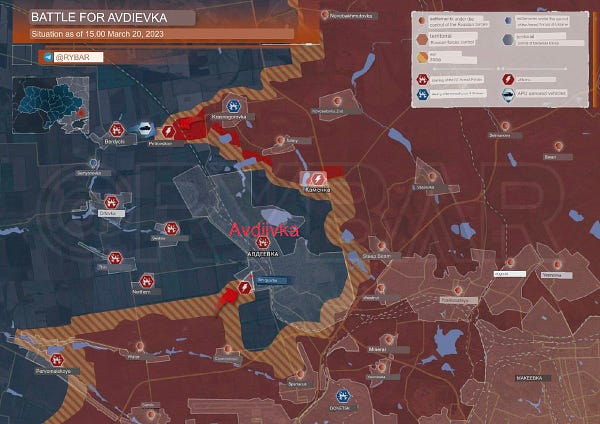


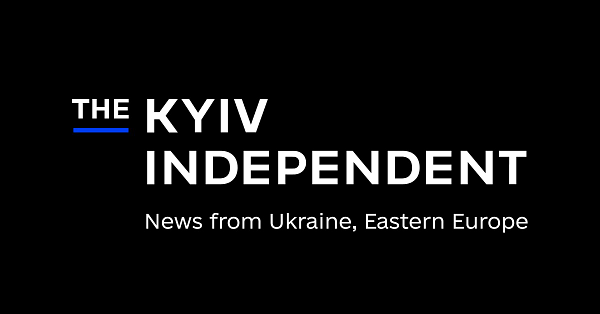

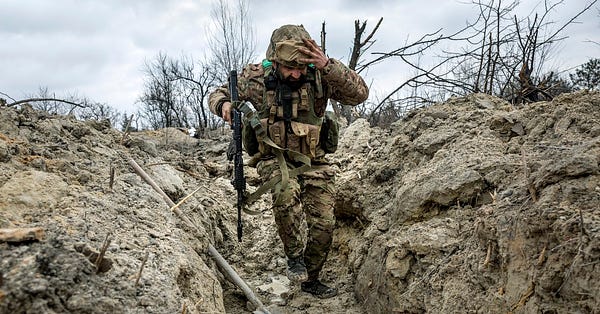



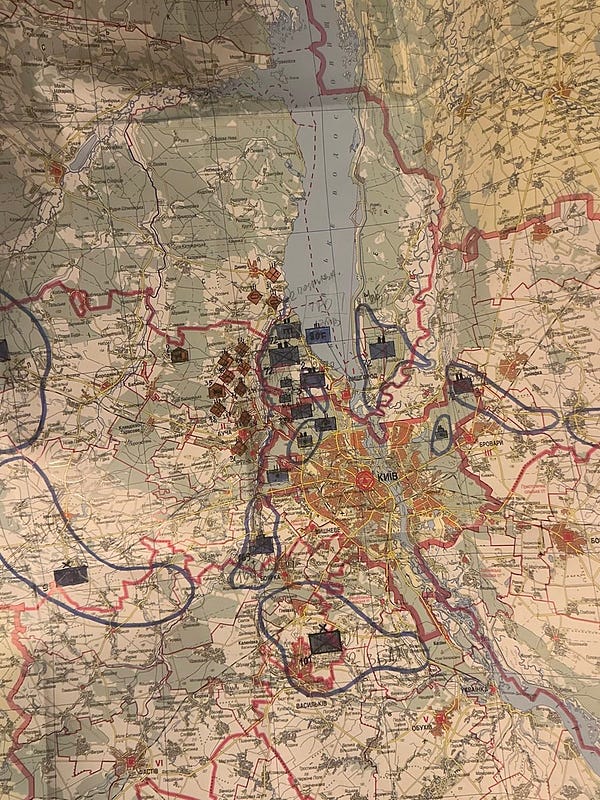

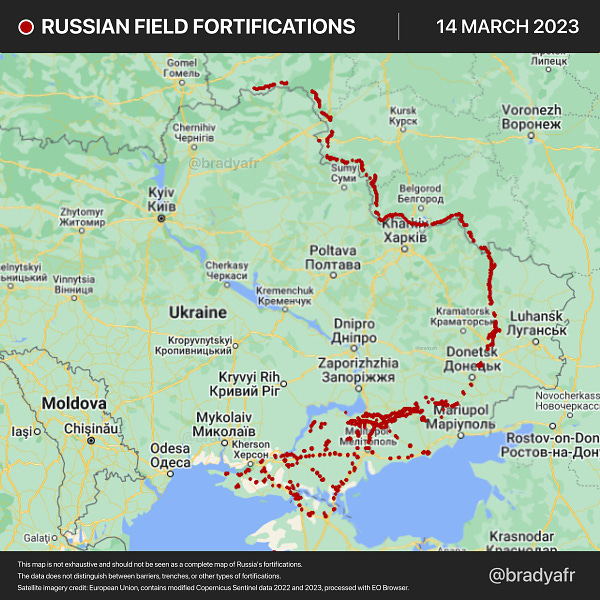


















0 comments:
Post a Comment